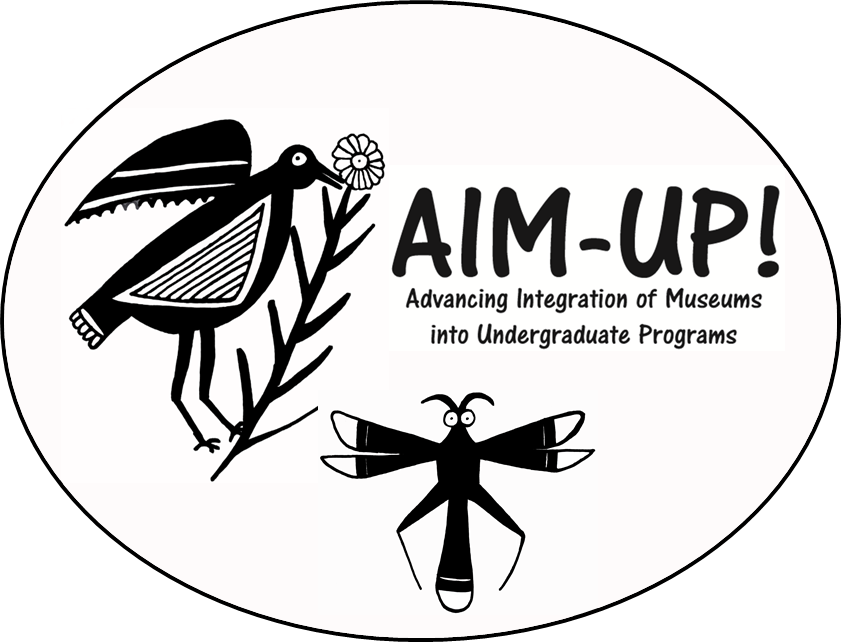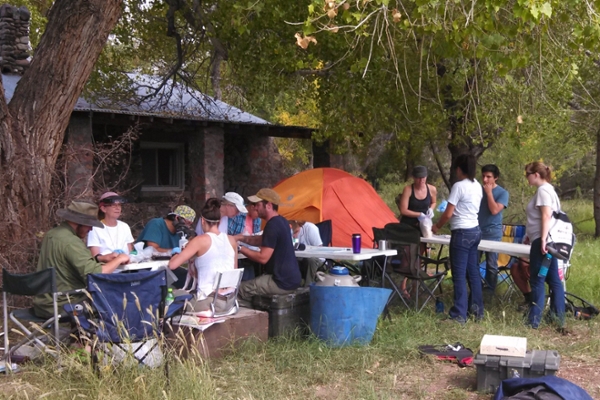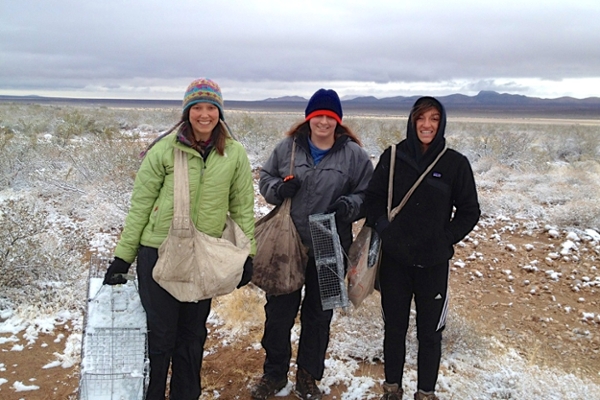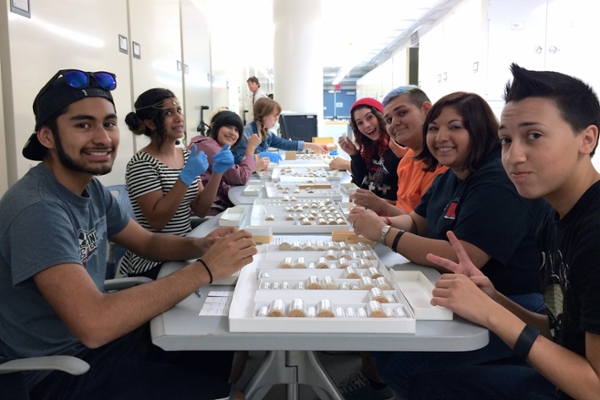Division of Mammals
open weekdays 8am - 5pm
visitors welcome by appointment
information for visitors
phone: (505) 277-1360
fax: (505) 277-1351
museum administrator
open weekdays 8am - 5pm
visitors welcome by appointment
information for visitors
phone: (505) 277-1360
fax: (505) 277-1351
museum administrator
Worldwide, comparatively few training programs in environmental, evolutionary, and biomedical sciences are centered at university museums. Consequently, MSB plays a primary role in using collections-based experiences to train the next generation of investigators in these areas. UNM is a “Minority Serving Institution” and the MSB is attracting top high school, undergraduate, and graduate students from diverse ethnic backgrounds to work on collections-based projects.
MSB specimens form critical infrastructure for graduate education at UNM and worldwide. We loan materials that serve as the basis for about 40 projects, annually. A large proportion of the projects supported by the MSB Mammal Division over the past six decades have been masters theses or doctoral dissertation. Starting with Dr. Jim Findley, and then continuing with the graduate programs of Curators Terry Yates & Joseph Cook, the Mammal Division has trained more than 90 graduate students. When combined with the graduate mentoring of Professors James H. Brown, Scott Altenbach, Michael Bogan, Felisa Smith, Ernie Valdez, & Seth Newsome, the University of New Mexico has long been the locus of one of the most prolific graduate programs in mammalian ecology and evolution in North America.
Students on NSF-REUs and in UMEB have participated in field, lab, or museum projects throughout the West and in Latin America. Our specimens support promising undergraduate projects and several recent honors theses have been based in the museum. The collection also serves as lab material in courses such as General Biology, Vertebrate Zoology, Molecular Evolution, and Mammalogy.

AIM-UP! is a NSF Research Coordination Network focused on new ways of incorporating the extensive archives and databases of natural history museums into undergraduate education. This year’s theme is Integrated Inventories: Complex Biotic Associations Across Space and Time. ” AIM-UP! is refining existing efforts and developing new integrated approaches to collections-based training in large-scale questions using the combined and broad-based expertise of educators, curators, collection managers, database managers, and scientists whose teaching and investigations span various disciplines and relate to topics covering a wide spectrum of time and space. AIM-UP! began as a collaboration between the University of Alaska, Harvard University, the University of California at Berkeley, and UNM, but is expanding to other educational institutions, federal agencies, Latin American institutions, and a large museum-based genetic consortium in Canada. Future educational themes to be explored include Geographic Variation, Evolutionary Dynamics of Genomes, Biotic Response to Climate Change, and Co-evolving Communities of Pathogens and Hosts as Related to Emerging Diseases.
The goal of the Undergraduate Opportunities (UnO) program was to recruit and prepare undergraduate students for graduate study and research careers. All students had introductory training and then experience concentrated research in their junior and senior years. UnO students participated in one credit-hour seminars each semester that emphasized academic skills, how to gain admission to graduate schools, and other topics for a successful career in biology. UnO undergraduates worked directly with a graduate student and faculty mentor.



Minority high school students worked with support from NSF's program "Research Assistantships for Minority High School Students." Other programs such as "Resource Apprenticeships for Students" (Bureau of Land Management) and federal work-study funds have provided training to many budding scientists. Indeed, many of today's best scientists and scholars began their careers associated with museums and a large number of MSB affiliated students are now professional scientists.
The Division of Mammals is currently working with Amy Biehl High School as part of the school's mission to serve. We host service days, in which about a dozen sophomores and juniors are able to experience the importance of natural history museums by taking an active part in what we do. Division staff also personally mentor one senior each year, guiding them through their 100-hour Senior Service Project.